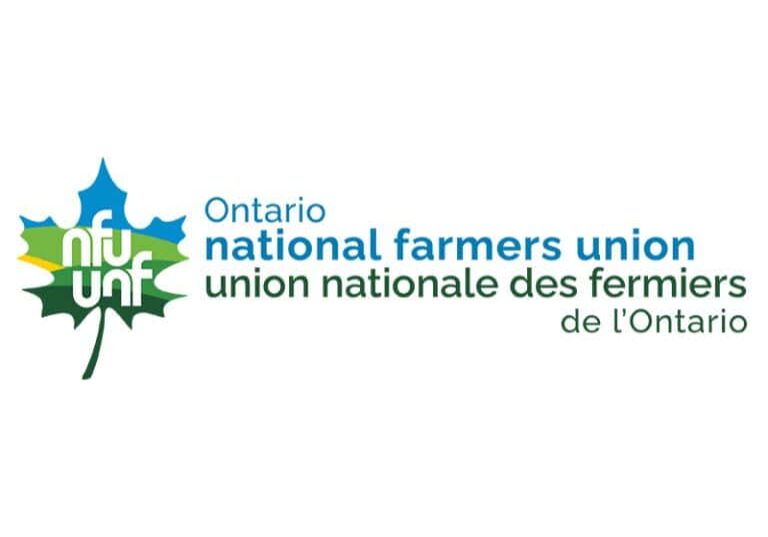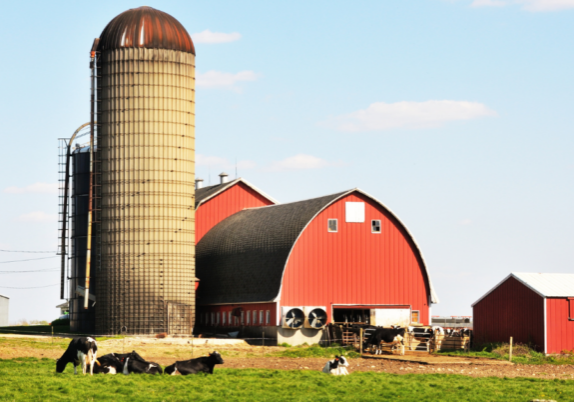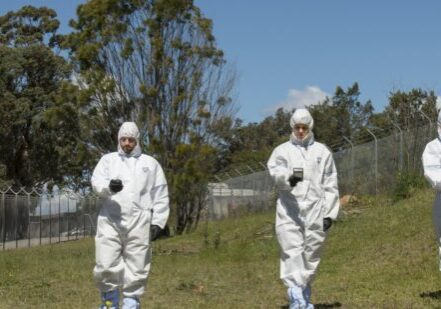NFU-O Response to New Heat Stress Regulation Under the Occupational Health & Safety Act

Dear Ministry,
Re: 23-MLITSD003 New Heat Stress Regulation Under the Occupational Health and Safety Act
The National Farmers Union-Ontario (NFU-O) is pleased to provide input to the Ontario Ministry of Labour, Immigration, Training and Skills Development (MLITSD) on its proposal to introduce a stand-alone regulation under the Occupational Health and Safety Act (OHSA) with specific requirements that would apply to all workplaces to protect workers from heat stress. As an accredited farm organization and direct membership organization made up of Ontario farmers and farm workers, the NFU-O is uniquely positioned to provide a perspective that recognizes the common interests of farm employers and farm workers, and to propose solutions that will support the economic, social and ecological sustainability of our food and farming system.
The NFU-O agrees that heat stress is a significant cause of occupational illnesses that may lead to death. Heat-related illnesses affect all workers, especially farmers and farm workers. Due to changes in our climate, extreme heat events are a growing health risk to farmers and farm workers in Ontario.
The NFU-O applauds the MLITSD for its commitment to improving worker safety in response to an increasingly hazardous climate. We feel that, in order for heat stress regulations to be effective, they must be clear, universal, and mandatory.
The following are specific recommendations in response to the consultation questions included with the proposed amendments.
Q1. Does your workplace potentially expose your workers to thermal conditions that may lead to a heat-related illness or otherwise impact their health and safety? If so,
A. What method(s) are you using to monitor and assess worker exposure?
B. What engineering controls (for example, shade structures) and other measures and procedures do you think are most effective at protecting workers?
Because of the outdoor, seasonal, and time-sensitive nature of agricultural work, farmers and farm workers are often exposed to thermal conditions that may lead to heat-related illness or otherwise impact their health and safety.
Many of our farm members implement a number of safety measures and procedures that are effective at protecting farm workers, including offering breaks that are not legally required under the Employment Standards Act, providing cold drinks throughout the day, shifting heavy and very heavy work to the early morning or evening hours when the temperatures are cooler, and providing shaded and/or air-conditioned spaces for workers’ breaks.
Shade, rest, and accessible, potable, cold water should be available to workers as needed, and clear protocol and trigger temperatures should be established to dictate when controls become mandatory.
Based on conversations with our farm employer and farm worker members, the NFU-O strongly recommends that heat stress regulations must be mandatory, and it must not be up to individual workers or employers to determine whether rest and water are necessary as this risks penalizing workers who make use of controls like shade, rest, and water.
Q2. Are there any additional provisions to protect workers that you think should be included in this proposal?
The following are specific recommendations the NFU-O would like to see included in the proposal:
Recommendation: Access to water, shade, and rest must be made mandatory and should be provided at the expense of the employer, and supported through the creation of needs-based funding channels.
The NFU-O is pleased to see that the proposed regulation includes requirements for: accessible, cool, and potable drinking water (Req. 7); administrative controls that reduce and/or shift hours of work, and introduce more breaks in the work-rest cycle during heat events (Req. 6.2); informing workers of all thermal conditions that pose a hazard to their health and safety (Req. 8). Shade, rest, and water are fundamental controls in addressing the risk of heat stress. We would add that water and/or other hydrating liquids, in addition to sufficient shelter for shade, should be made available at the expense of the employer, with needs-based financial support available for employers who need to upgrade their facilities to be compliant with the new regulations.
Breaks to consume water and rest in the shade should be mandatory once temperatures reach a trigger to be determined by ACGIH recommendations, or by other means so long as the method is in accordance with or exceeds recognized industrial hygiene practices and equally protects the health and safety of workers, such as those established by OHCOW’s Humidex calculator, to be approved in workplaces with over 20 employees by the joint health and safety committee required under the Employment Standards Act.
Recommendation: Access to safe temperatures and cold, potable water must extend to employer-provided housing.
While not currently considered a part of the workplace, agricultural workers living in employer-provided housing through the TFWP and SAWP have reported that temperatures in their bunkies can rise to humidex values above 40C. Employer-provided housing should be required to meet the same heat exposure limits as their place of work, including providing engineering controls such as air conditioning, potable, cold water, and sufficient ventilation, which ensure liveable worker housing conditions.
Recommendation: Applicable engineering controls should be required for outdoor workplaces.
The proposed regulation currently exempts outdoor workplaces from a requirement to use engineering controls to maintain a worker’s heat exposure (Req. 5.1). While we respect that some indoor engineering controls (fans, air-conditioning, insultation, etc.) are not applicable to farm fields, agricultural employers should still be required to provide accessible air-conditioned and/or cool, shaded rest areas, and machinery for certain agricultural operations should be deployed to reduce the physical demands of outdoor work wherever possible.
Recommendation: Administrative controls during heat warnings and high temperatures, following ACGIH recommendations, should be mandatory, enforced and subject to oversight.
The proposed regulation currently states employers are only required to advise workers of Environment and Climate Change Canada heat warnings, the importance of staying hydrated and taking breaks, and to inform all workers of all rest periods scheduled within the employer’s work procedures (Req. 9). We are concerned that alerting workers to the existence of a heat warning does not go far enough to protect them from the risk of heat stress. Work within those temperature conditions should be rescheduled when the temperature is cooler and/or, if possible, be moved into shaded areas or indoors. ACGIH recommendations should be mandatory, enforced, and subject to oversight.
The ACGIH Humidex Response Plan Table and the 2007 ACGIH Heat Stress Threshold Limit Value establish a humidex of 45C (for moderate unacclimatized & heavy acclimatized) and 50C (for moderate acclimatized & light unacclimatized) as the temperature ceilings above which only medically supervised work can continue. We feel that even for acclimatized workers this is too high.
Heat warnings and temperatures that reach 40C (for moderate unacclimatized & heavy acclimatized) and 45C (for moderate acclimatized & light unacclimatized) should trigger a series of administrative controls that mandate shaded or air-conditioned rest with no lost wages, including for harvesters engaged in piece work. Time and again we hear stories of farm workers refusing to take potentially life-saving rest for fear of punishment or lost wages. Effective and mandated OHSA regulations will prevent serious illness and mortality.
In addition to the recommendations above, we believe the new heat stress regulation should include and/or permit:
Anti-reprisal mechanisms within the regulations
Anti-reprisal mechanisms are needed to ensure workers are not disadvantaged or disciplined for observing OHSA regulations.
Disaster relief and hazard pay
While not strictly under the scope of this consultation, the NFU-O supports the prioritization of collaboration across all levels of government to establish disaster relief and hazard pay to support workers who:
- Lose wages to climate events such as extreme heat waves, major hurricanes, wildfire, flood, and crop failure (disaster relief)
- Complete crop saving work in the face of extreme environmental hazards (hazard pay)
Inclusion of agricultural workers under the Employment Standards Act (ESA)
Granting agricultural workers inclusion under the ESA will afford agricultural workers the same standards and protections as other outdoor workers, including the right to paid breaks and permanent paid sick days. These basic protections are key to reducing the risk of heat stress and financial loss for employers and workers alike.
Anonymous and third-party complaints at the Ontario Labour Relations Board
To ensure the proposed regulations are enforceable and that workers will not fear reprisals the OLRB should allow anonymous and third-party complaints against employers who fail to abide by the heat stress regulations.
On-site medical support (RN or RPNs) at worksites with over 50 employees.
While first aid training and materials are required in all workplaces under the OHSA, in workplaces with over 50 employees the OHSA should require employers to provide on-site medical support (RN or RPNs) who regularly check-in on employees, especially during extreme heat events.
Q3. The MLITSD is committed to ensuring resources to support the implementation of the proposed new regulation are available. How can MLITSD best help employers, especially small businesses, to implement the proposed new requirements?
Small to midsize farmers do not have the administrative and HR capacity of larger farm employers. Similarly, smaller scale farmers hiring resident workers often feel pressure to implement strict heat protocols that come at a financial cost. In order to not put small and midscale farmers at a competitive disadvantage, OHSA protocols should be clear, universal, and mandatory. As well, needs-based financial support should be made available for agricultural employers who need to upgrade their facilities and infrastructure to comply with the new regulation.
Thank you for your consideration of these recommendations. We would be happy to meet to discuss any of these points further.
Sincerely,
Max Hansgen,
President, National Farmers Union – Ontario








